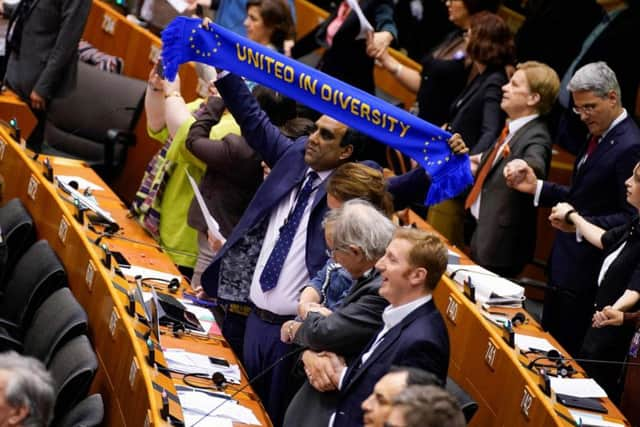Brexit Day: What happens after January 31?
The UK and the EU are entering what is known as the transition period - an 11 month window in which an intense round of negotiations will take place, with the ultimate aim of hammering out an agreement by December 31.
During that time the UK will remain in the Single Market and Customs Union - but will have no voting rights within the EU. There will be no British MEPs sitting in the European Parliament. The UK will not be attending any EU summits held in 2020.
Advertisement
Hide AdAdvertisement
Hide AdPractical matters - like taking a flight to a European city, or buying and selling goods - will continue during the transition period as they did before. But that could all change by the end of the year.


What stays the same?
• Travelling to and from the EU.
• Freedom of movement
• Trade between the UK and EU.
What happens after December 31?
That all depends on the complex series of negotiations that will soon begin. Make no mistake, this will not be an easy task. There is no precedent for a comprehensive international trade agreement being reached in such a short time frame.
There is an option to extend the transition period - but Boris Johnson has indicated his Government has no plans to use it. If an extension is not agreed by the end of June, the December 31 deadline will become fixed.
What needs to be negotiated?
• Trade. The UK and EU have both said they want a comprehensive free trade agreement signed off before December 31. Neither side wants to see tariffs introduced on the flow of goods. But reaching an agreement on what such a deal looks like could be difficult.
• Law enforcement.
• Fishing. Who gets access to UK waters? And how often?
• Aviation. There have already been warnings that flights could be grounded if a deal on aviation is not reached by the end of 2020.
• Finance. The UK's financial sector depends on interconnection with Europe, and vice versa.
Could some issues be agreed by December 31 at the expense of others?
In theory, yes. The EU has already indicated as such. But the UK Government is aiming to have everything wrapped up by the end of the year. Whether that is achievable is open to debate.
Advertisement
Hide AdAdvertisement
Hide Ad“The negotiations will open on all the chapters of the negotiating mandate,” an EU official said last week.
“But then at some point a decision might have to be taken about what we go ahead with before the end of the year and what continues beyond the end of the year."
The Prime Minister's official spokesman has insisted that the government believes it will be possible to secure a good free trade agreement within the 11-month deadline for a transition period after the UK formally leaves the EU on 31 January.